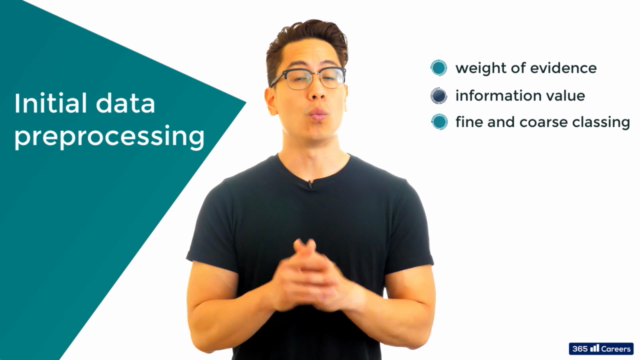Credit Risk Modeling in Python

Why take this course?
🎉 Credit Risk Modeling in Python: A Complete Data Science Case Study 📚
🚀 Course Headline: Brand new course: Credit Risk Modeling in Python
Embark on a transformative data science journey with our comprehensive online course, "Credit Risk Modeling in Python." This is your chance to dive deep into the world of financial modeling, where you'll learn how to harness the power of Python for predictive analytics in the banking sector. 🏦✨
Why Choose This Course?
🌍 Expert Instructor: Our instructor is a seasoned professional with a PhD from the Norwegian Business School, boasting teaching experience at top-tier universities such as HEC, the University of Texas, and the Norwegian Business School. 🎓
🔽 For Beginners & Beyond: Tailored for beginners, this course starts with the fundamental theory and guides you through the initial stages of data preprocessing, building up to a complete credit risk modeling exercise. 🕹️
🔥 Up-to-Date Content: The techniques and methods taught in this course are current and directly applicable in today's Python models for credit risk assessment. 🆗
🏅 Compliance & Real-World Application: Learn how to create models compliant with Basel II and Basel III regulations, working with a real-world dataset that sets this course apart from the rest. 📊🌐
✨ Stand Out in Your Career: Develop highly sought-after skills in your data science portfolio by learning how to approach tasks as they are solved in professional settings. 🚀
👀 Behind-the-Scenes Learning: Gain insight into the real-world application of data science, from problem understanding to model deployment. 🔍
Course Highlights:
- Theory & Preprocessing: Understand the underlying principles and learn how to handle raw data effectively.
- Modeling Techniques: Master various data science techniques including Weight of Evidence, Information Value, Fine and Coarse Classing, Linear & Logistic Regression, and more. 📈
- Evaluation Metrics: Learn to assess your models using AUC, ROC Curve, Gini Coefficient, Kolmogorov-Smirnov Test, and Population Stability Index. 🔨
- Model Maintenance: Discover how to keep your models up-to-date and relevant in a changing data landscape. 🛠️
Learning Resources Included:
- Video Lectures: Engage with high-quality video content to guide your learning experience.
- Notebook Files: Work alongside the instructor with interactive Python notebooks.
- Homework & Quizzes: Test your understanding with practical homework assignments and quizzes.
- Slides & Downloads: Access comprehensive slides and additional downloadable resources for further study.
- Q&A Support: Reach out to the course tutor through a dedicated Q&A platform for personalized assistance. 🤝
Don't miss this opportunity to launch or elevate your career in data science with real-world, applicable knowledge and skills. Enroll today and step into the world of financial modeling with "Credit Risk Modeling in Python." Let's get started on a path to success! 🌟
See you inside the course, where your data science journey begins! 🎉
Course Gallery




Loading charts...
Comidoc Review
Our Verdict
Credit Risk Modeling in Python offers extensive coverage and detailed explanation of essential concepts, making it an excellent course for anyone interested in this field. Despite minor shortcomings such as outdated code, arbitrary classing methods, and occasional inconsistencies, the overall value is high. The engaging instructor offers a wealth of knowledge and expertise that can significantly enhance your credit risk modeling skills and boost your professional career.
What We Liked
- Comprehensive coverage of credit risk modeling, suitable for both beginners and experienced professionals
- In-depth explanation of key concepts like PD, LGD, and EAD, aided by practical examples
- Enthusiastic and clear instructor, providing valuable insights into the field of credit risk modeling
- Neatly explained coding part using Python, which can significantly enhance your skills in this area
Potential Drawbacks
- Outdated code causing issues with the current Pandas libraries, demanding manual troubleshooting and adaptation
- Arbitrary cluster selection for dummy variables and subjective heuristics used for fine/coarse classing in Weight of Evidence part
- Lack of in-depth explanation and motivation for certain methods, which might frighten experienced statistical modelers
- Some default mark values in the course may not align with conventional practices (1 for bad borrowers instead of 0 for good borrowers)
- Minor inconsistencies in data names that can cause confusion during the learning process